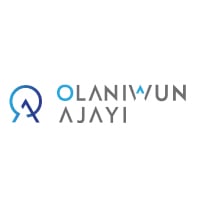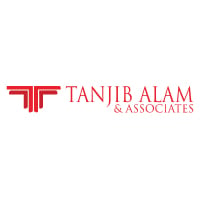
Chief legal officer | Air Liquide










Majdoleen Aboudi
Chief legal officer | Air Liquide
Team size: 19
Over the past year, AMEI’s legal function underwent a full-spectrum transformation, grounded in business partnership, proactive legal support, AI integration and human-centred leadership. This stems from a belief that the era is one of redefining how the general counsel operates, rather than merely pursuing legal modernisation.
The legal leadership structure was completed with the appointment of three regional legal heads – each from different nationalities, including two women and one man – creating a more diverse, business-anchored and sustainable legal function. Each lawyer’s nationality aligns with the region they support. The model allows local proximity while leveraging collective strength through two centres of excellence: one focused on business integration and knowledge retention, and the other on governance alignment.
AI and legal technology were rolled out across AMEI. In August 2024, Google Forms was implemented to organise the legal workload, enabling centralised requests, improved visibility, paperless solutions and audit trails. All lawyers were trained on Gemini, an AI tool used to summarise long-term agreements aligned with business fundamentals and analyse competition law, allowing business users to navigate risks more efficiently. An in-house contract validation tool was embedded in India (98%) and Egypt, with plans to deploy in South Africa in 2025, enhancing contract lifecycle visibility.
Efficiency and governance were improved through the creation of a litigation tracker, which focused not only on reactive matters but also on root causes, resulting in an 80% reduction in litigation volume. A Smart Governance Sheet was developed to map powers and authorities in line with Saudi Companies Law, simplifying board structures, with plans for regional deployment.
Cost and risk control measures included containing external counsel costs through internal capability-building and knowledge management. €718,000 was collected in litigation cash, and €869,000 in legal savings was achieved, alongside the recovery of 22 tanks and 622 cylinders, strengthening asset recovery accountability.
Sustainability and tools were further advanced by partnering with commercial teams to localise templates and align them with evolving business models. Legal simplification and entity restructuring projects were implemented across seven regions, with notable progress in South Africa (60%) and Egypt (50%).
human-centred leadership and training initiatives included the launch of ‘mental models for lawyers,’ introducing resilience as a mental model to enhance emotional intelligence and self-leadership. Governance training for all new general managers and board members, IM contract training, and competition dawn raid awareness sessions were conducted across AMEI. These initiatives contributed to a score of 92/100 in empowerment, safety and trust in the Voice Survey, reflecting strong psychological safety and leadership resonance.
What strategies do you employ to ensure the successful digital transformation of a legal department while maintaining compliance with your country’s data protection laws?
Our approach to digital transformation is anchored in human usability, legal foresight and responsible innovation. We don’t deploy tools for the sake of technology – we prioritise what empowers lawyers and accelerates the business.
This past year, we introduced Google Forms across AMEI to centralise and digitise legal requests, resulting in better time visibility, structured workflows and reduced email dependency. This allowed us to measure workload, identify efficiency gaps, and adopt a paperless, audit-tracked model without compromising data integrity.
We also trained our entire legal team on Gemini AI and embedded its use in contract summarisation and competition law analysis – allowing for faster legal assessments, better alignment with business timing, and risk-informed decisions.
Data protection remains a foundational pillar. In one privacy compliance case, we embedded key takeaways into a team-wide ‘lessons learned’ loop, which was then used to enhance our data handling protocols and reinforce compliance training. This real-time reflection and system-level learning helped ensure that our digital rollout remained not only effective but also legally resilient.
How do you prioritise diversity and inclusion within your legal department, and what initiatives have you implemented to foster a more inclusive work environment?
Diversity for us is not only a metric – it is a lived value, reflected in who leads and how we lead.
This year, the legal leadership team was completed with the appointment of three regional legal heads – each from a different nationality, two of whom are women. This was not just about representation; it was about building a structure that reflects local relevance while enabling cross-regional growth and synergy.
Each legal head was entrusted not only with regional responsibilities but also with leading key strategic initiatives across the AMEI cluster, such as AI integration, litigation tracking and governance tools. This dual design created space for each team member to lead beyond their market, nurturing horizontal collaboration and genuine leadership growth.
Roles and KPIs were clearly defined, tightly aligned with business objectives, and paired with meaningful ownership. This structure fostered agility, retained knowledge, and cultivated leadership as a lived experience – extending across the cluster and into collaborations with other regions.
The outcome was a team that is both diverse in composition and inclusive in opportunity. The internal Voice survey reflected a 92/100 empowerment score and high trust in leadership, signalling a culture of psychological safety and shared purpose. These structural elements were reinforced through wellbeing and resilience sessions, embedding emotional intelligence and inclusion into the heartbeat of the legal function.
Have you had any experiences during your career as a lawyer that stand out as particularly unique or interesting?
What stands out most is not a case, but a shift in how legal departments are choosing to show up in today’s world.
This year, a series called ‘Mental Models for Lawyers’ was introduced, reframing how lawyers think – not just how they act. The sessions explored strategic thinking, resilience, emotional regulation and presence as core leadership tools. They bridged the gap between intellect and intuition, law and humanity—helping lawyers access deeper layers of performance and clarity.
Structured ‘lessons learned’ were also embedded into post-M&A processes, turning experience into institutional learning. The framework allowed insights from one deal to be immediately applied to the next, improving strategic alignment and integration outcomes across the board.
These initiatives reflect a broader evolution in the legal identity: from gatekeepers to emotionally intelligent, digitally empowered partners in transformation. That is the journey that is most meaningful.
Chief legal officer - Africa, India and Middle East | Air Liquide
Chief legal officer | Air Liquide